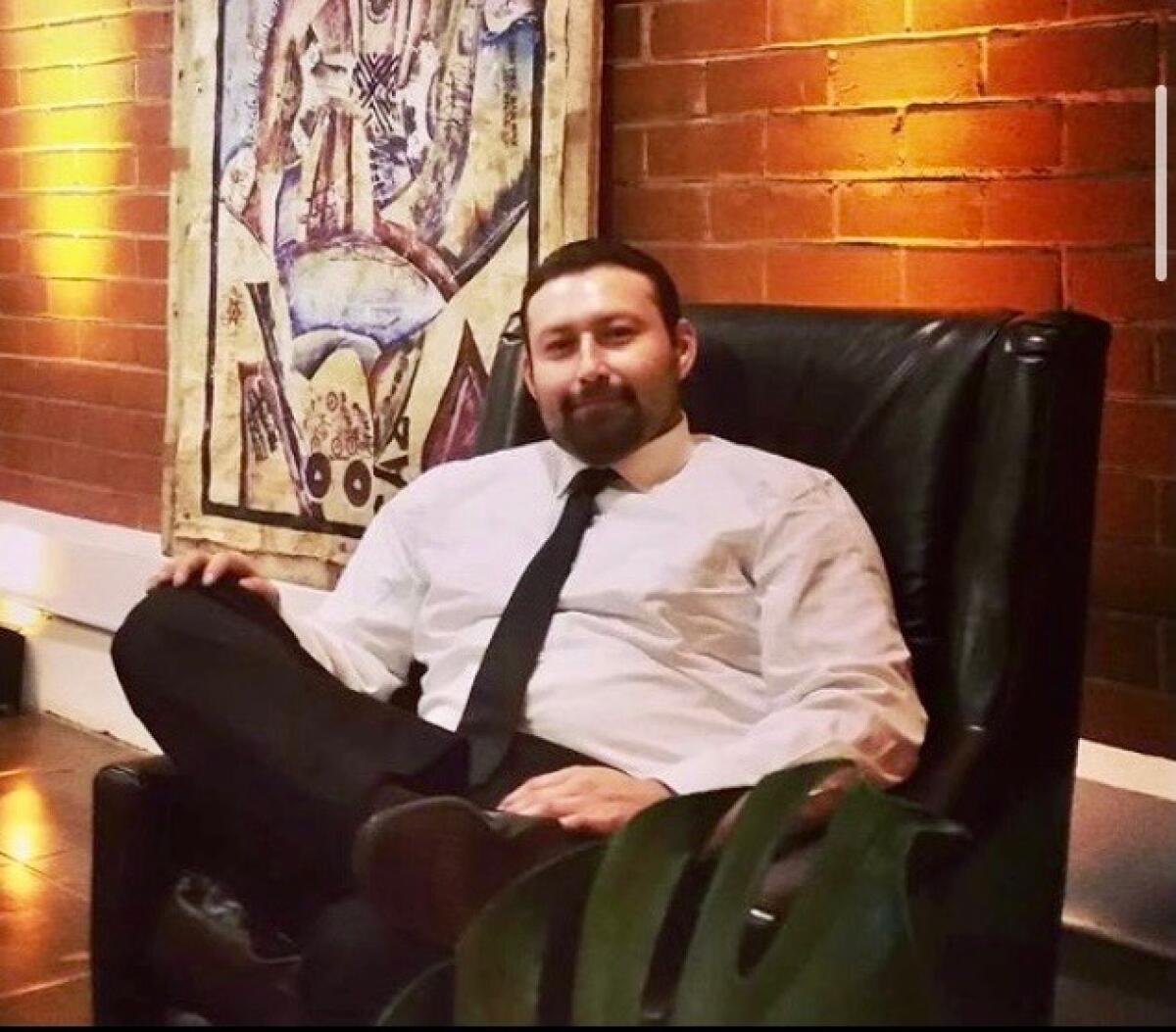L.A. County sheriff’s deputy charged in shooting death of suicidal man

- Share via
A Los Angeles County sheriff’s deputy was charged Wednesday in the fatal 2021 shooting of a suicidal man.
Prosecutors filed one count of assault with a firearm and one count of assault under color of authority against Remin Pineda, 40, in the March 2021 killing of David Ordaz Jr. in East Los Angeles. Although Ordaz, 34, was armed with a kitchen knife and had talked to his sister about “suicide by cop” before the incident, the charges signal prosecutors’ belief that Ordaz did not pose an imminent threat to deputies when Pineda opened fire.
“Unlawful and excessive force at the hands of police erodes the public trust and leads to further divisions between law enforcement and the communities they serve,” Los Angeles County Dist. Atty. George Gascón said in a statement Thursday. “It is imperative that we hold law enforcement accountable when they act unlawfully. This tragic killing of Mr. Ordaz in the presence of his own family has caused tremendous harm that will reverberate for years to come.”
An arraignment has yet to be scheduled and it was not immediately clear if Pineda had retained an attorney. He was relieved of his law enforcement powers after the shooting, according to a statement issued by the Sheriff’s Department.
Last year, Sheriff Alex Villanueva said he had “grave concerns” about the shooting. In a statement issued Thursday, he again offered his condolences to the Ordaz family.
When deputies confronted Ordaz at his family’s home, he was holding a 12-inch kitchen knife and told deputies he wanted them to shoot him, according to video of the incident recorded by cameras worn by the deputies.
“Why are you upset today?” one deputy asks in the video.
“Because you won’t [expletive] shoot!” Ordaz screamed in reply.
The video showed deputies standing about 10 feet away from Ordaz as they told him they didn’t want to hurt him and ordered him to drop the knife. Ordaz moved toward the yard where some of his relatives were standing, and a deputy warned he was putting them in danger.
As his relatives pleaded for him to drop the knife and tried to calm him down, Ordaz asked the deputies to summon a helicopter and a news chopper, according to the video.
Eventually, deputies fired several beanbag rounds at Ordaz, who then took several steps forward and was felled by a barrage of at least a dozen bullets. The volley of gunfire continued as he hit the ground and his relatives screamed out, according to the video.
Four deputies opened fire on Ordaz, but Pineda fired the most rounds, according to attorney Federico Sayre, who is representing Ordaz’s family in a federal lawsuit against the Sheriff’s Department.
While the family is happy with the decision to charge Pineda, Sayre said they believed all four deputies were criminally liable.
A spokeswoman for Gascón did not respond to questions about the decision to charge only Pineda. Reports that detail prosecutors’ rationale in such cases are published on the district attorney’s office website, but the office under Gascón has been slow to release them.
Sayre alleged it was Pineda who continued firing as Ordaz collapsed to the ground.
“He’s on the ground, he’s helpless. He sort of looks up and the last shot, which is like a coup de grace ... that kills him,” Sayre said.
Sayre also questioned authorities’ description of Ordaz as charging toward deputies before they opened fire. At least eight of the 12 gunshot wounds Ordaz sustained entered his body through his back or side, according to an autopsy report.
Policing experts raised serious questions about the tactics employed by the deputies shortly after the shooting last year.
“Even if [Ordaz] took a step towards the officers, it wasn’t that those officers were in immediate danger,” Jonathan Smith, a former chief of the special litigation section of the Department of Justice’s Civil Rights Division, told The Times last year.
“He wasn’t threatening, he wasn’t holding someone hostage, the knife wasn’t near anybody,” Smith continued. “It did not look like he was charging or closing a distance to the officers in a way that poses a threat.”
Ordaz, a father of three children all under the age of 10, had previous run-ins with law enforcement when he was in crisis. Deputies had subdued him peacefully in 2006 and 2007 at the home, according to Sayre, who said Ordaz grew up in the home and was living there at the time.
Sayre said Ordaz had not been diagnosed with a specific mental illness at the time of his death, but his sister told deputies on a 911 call that she also feared he was under the influence of methamphetamine on the day of the shooting. An autopsy found several types of narcotics in Ordaz’s bloodstream at the time of his death, records show.
In the prior encounters, Sayre said, sheriff’s deputies waited for a team trained in de-escalating mentally ill persons to arrive and help calm Ordaz down.
“The problem here, besides the behavior of the officers, is they didn’t wait for the medical team that they use to de-escalate things,” Sayre said. “They went and got close to him and there was no reason to do that, as he wasn’t threatening everybody.”
Times staff writers Richard Winton and Alene Tchekmedyian contributed to this report.
More to Read
Sign up for Essential California
The most important California stories and recommendations in your inbox every morning.
You may occasionally receive promotional content from the Los Angeles Times.











